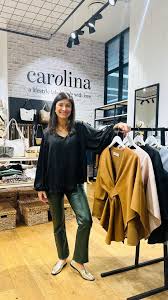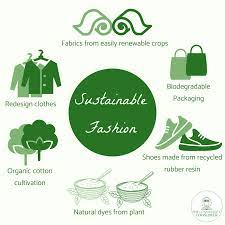Elevate Your Style with Carolina Clothing’s Timeless Elegance
Carolina Clothing: Where Style Meets Comfort
Carolina Clothing is a brand that embodies the essence of effortless style and comfort. With a focus on creating versatile pieces that seamlessly transition from day to night, Carolina Clothing has become a go-to choice for fashion-conscious individuals looking for wardrobe staples that make a statement.
What sets Carolina Clothing apart is its commitment to quality craftsmanship and attention to detail. Each garment is meticulously designed to not only look good but also feel great against the skin. From soft, breathable fabrics to flattering silhouettes, Carolina Clothing ensures that every piece is a joy to wear.
Whether you’re dressing for a casual day out or a special occasion, Carolina Clothing offers a range of options to suit your personal style. From chic dresses and tailored separates to cosy knitwear and stylish accessories, there’s something for everyone in the Carolina Clothing collection.
But it’s not just about looking good – Carolina Clothing also prioritises sustainability and ethical practices. By using eco-friendly materials and supporting fair labour practices, the brand is dedicated to making a positive impact on both people and the planet.
So if you’re looking for clothing that combines style with comfort, look no further than Carolina Clothing. Discover the perfect pieces to elevate your wardrobe and express your unique sense of fashion with ease.
7 Tips for Embracing the Comfortable and Casual Style of Carolina Clothing
- Carolina clothing is known for its comfortable and casual style.
- Consider choosing pieces in earthy tones such as olive green or warm brown to capture the essence of Carolina clothing.
- Opt for breathable fabrics like cotton or linen for a relaxed and laid-back look.
- Mix and match different textures to add depth to your Carolina-inspired outfits.
- Accessorize with simple jewellery or scarves to complement your Carolina clothing ensemble.
- Embrace denim as a staple in your wardrobe for a classic Carolina vibe.
- Don’t be afraid to incorporate plaid patterns or gingham prints into your Carolina-inspired outfits.
Carolina clothing is known for its comfortable and casual style.
Carolina Clothing has garnered a reputation for its signature blend of comfort and casual elegance. Renowned for its laid-back yet stylish approach to fashion, Carolina Clothing effortlessly combines comfort with a touch of sophistication. Each piece exudes a sense of ease and relaxation, making it the perfect choice for those seeking a wardrobe that seamlessly transitions from day to night without compromising on style or comfort.
Consider choosing pieces in earthy tones such as olive green or warm brown to capture the essence of Carolina clothing.
When selecting items from the Carolina Clothing collection, it is advisable to opt for garments in earthy hues like olive green or warm brown. These colours not only evoke a sense of natural beauty and warmth but also encapsulate the essence of Carolina clothing – a blend of style, comfort, and timeless elegance. By incorporating these earthy tones into your wardrobe choices, you can effortlessly embody the brand’s ethos and showcase your fashion sensibility with a touch of sophistication.
Opt for breathable fabrics like cotton or linen for a relaxed and laid-back look.
For a relaxed and laid-back style, consider opting for breathable fabrics such as cotton or linen when choosing your Carolina Clothing pieces. These natural materials not only offer comfort but also ensure that you stay cool and fresh throughout the day. Whether it’s a casual day out or a leisurely weekend getaway, incorporating cotton or linen garments into your wardrobe will effortlessly elevate your look while keeping you feeling comfortable and stylish.
Mix and match different textures to add depth to your Carolina-inspired outfits.
To elevate your Carolina-inspired outfits, consider mixing and matching different textures to add depth and visual interest. By combining smooth fabrics with textured ones, such as pairing a silky blouse with a tweed skirt or a knitted sweater with leather trousers, you can create a sophisticated and dynamic look that embodies the essence of Carolina Clothing’s style ethos. Experimenting with textures not only enhances the overall aesthetic of your outfit but also adds a tactile dimension that elevates your fashion ensemble to new heights.
Accessorize with simple jewellery or scarves to complement your Carolina clothing ensemble.
When styling your Carolina Clothing ensemble, consider accessorising with simple jewellery or scarves to enhance your look. Adding subtle touches like delicate necklaces, minimalist earrings, or a chic scarf can elevate your outfit and bring a touch of sophistication to your overall appearance. These understated accessories can complement the timeless elegance of Carolina Clothing pieces, adding a finishing touch that effortlessly ties your ensemble together.
Embrace denim as a staple in your wardrobe for a classic Carolina vibe.
Embracing denim as a staple in your wardrobe is key to achieving that classic Carolina vibe. The timeless appeal of denim effortlessly complements Carolina Clothing’s ethos of style and comfort. Whether it’s a well-fitted pair of jeans or a versatile denim jacket, incorporating denim pieces into your outfits adds a touch of effortless chic that resonates with Carolina Clothing’s signature aesthetic. So, elevate your wardrobe with denim essentials to capture that classic Carolina vibe and exude confidence in every look you create.
Don’t be afraid to incorporate plaid patterns or gingham prints into your Carolina-inspired outfits.
When styling your Carolina-inspired outfits, don’t shy away from incorporating plaid patterns or gingham prints. These classic patterns can add a touch of timeless charm and sophistication to your look, perfectly complementing the effortless style and comfort that Carolina Clothing is known for. Whether you opt for a plaid shirt paired with denim or a gingham print dress for a more feminine flair, embracing these patterns can elevate your outfit and showcase your fashion-forward sensibility with confidence.


